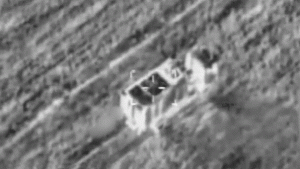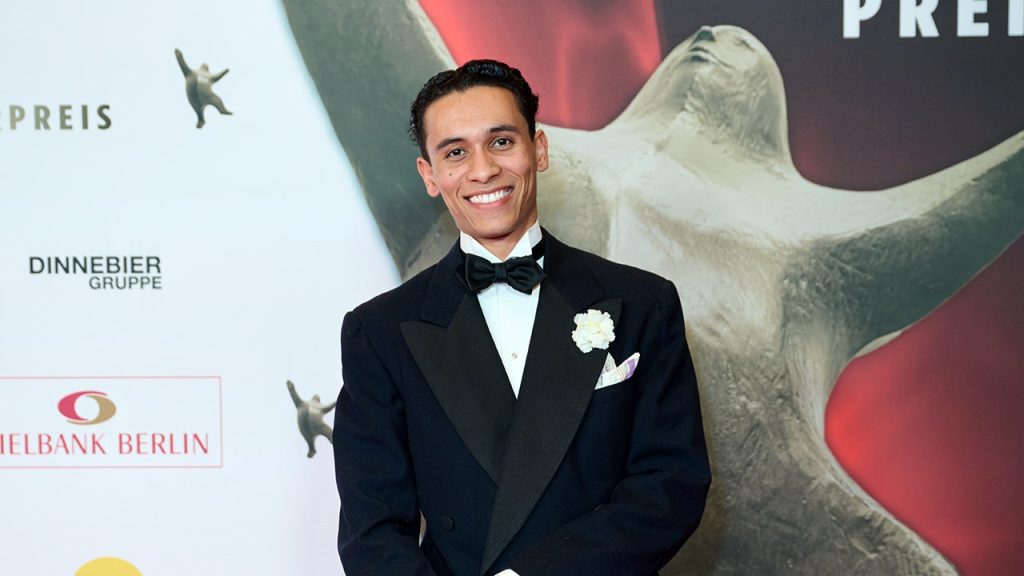Swing Musician Faces Backlash Over Pro-Hostage Solidarity Pin
In the vibrant world of swing music, where rhythm and harmony should unite audiences, 25-year-old Berlin musician David Hermlin finds himself at the center of an unexpected controversy. Known online as “Daveetheewave,” Hermlin has built a reputation not just for his musical talents but for his meticulous 1930s aesthetic—complete with slicked-back hair, vintage microphone, and tailored gray suits that would make Fred Astaire proud. His Swing Dance Orchestra faithfully recreates the golden era’s sound, performing classics like “Let’s Fall in Love” with authentic period arrangements. But recently, it wasn’t his music making headlines; it was a small yellow ribbon pin on his lapel—a symbol of solidarity with the hostages still held in Gaza—that sparked a series of professional consequences.
The controversy began at Sweden’s Herräng Dance Camp, one of the world’s most prestigious swing festivals, where Hermlin was performing as a drummer with another ensemble. During the festival, a group called Jazz with Palestine held an open meeting, which Hermlin attended with what he describes as the simple intention to “listen to their concerns and, if possible, have a dialogue.” At this meeting, Hermlin asked two questions that would later be characterized as intimidating: he inquired about where monetary donations to the group would be directed and asked about the meaning of Arabic lyrics in a song being used for choreography. “I didn’t harass or intimidate anyone. I merely asked two questions I thought were legitimate,” Hermlin told Fox News Digital. Despite what he viewed as innocent inquiries, he later learned that organizers had not only excluded him from group jam sessions but also made it clear they would not consider booking his personal projects in the future.
The yellow ribbon pin worn by Hermlin became another focal point of criticism, with some festival attendees suggesting it was inflammatory or constituted political propaganda. “People pointed at my yellow pin and said, ‘Maybe people are aggressive because of your pin.’ I asked them, ‘Do you know what it means?’ They said no,” Hermlin recounted. “This pin is about the hostages. It’s not about the IDF or the government. It’s about empathy.” The fallout has spread beyond the Swedish festival, with Hermlin reporting that other festivals have begun dropping him—but notably not his band—from their lineups. This personal exclusion has left him questioning the values of a community that historically prided itself on inclusivity: “I’m the only one being excluded. Not the band, just me. A festival told me, ‘don’t take it personally, you’ll get a cancellation fee.’ But how is that not personal?”
For Hermlin, the experience echoes troubling historical parallels. “It reminds me of the McCarthy era, when artists were pressed to declare if they were communists. If you said yes, you were boycotted,” he observed. The irony isn’t lost on him that this exclusion is happening in a music scene that celebrates pioneers who fought against discrimination. “They did this in front of photos of Norma Miller, Frankie Manning and the Nicholas Brothers, artists excluded in the 1930s. How ironic is that?” he noted. Hermlin also points to Benny Goodman, the Jewish clarinetist who became the “King of Swing” and defied segregation by hiring Black musicians like Teddy Wilson and Lionel Hampton at a time when such integration was revolutionary. “As Benny Goodman showed in the 1930s, swing is about inclusion. That’s its very soul,” Hermlin reflected, highlighting the contradiction between swing’s inclusive origins and his current experience of exclusion.
Jazz with Palestine, the group at the center of the controversy, describes itself as a movement of jazz and swing dancers across Europe that combines music, dance, and political action in solidarity with Palestinians. According to their website, they raise awareness and funds, emphasizing that jazz is rooted in the “fight against racial and colonial oppression.” The group has recently promoted fundraising efforts for humanitarian organizations in Gaza and announced plans for social dance events and educational forums. When Fox News Digital reached out for comment, they received no response. For Hermlin, the fundamental issue transcends this specific political context: “What kind of a world is this now that before I can play at a festival, I have to make a political statement? It’s a music festival, not a political festival,” he said, raising questions about artistic freedom in an increasingly polarized cultural landscape.
Despite the professional setbacks and personal disappointment, Hermlin remains committed to his artistic vision and principles. “I had no choice but to speak up. Music should unite and not divide,” he asserted with conviction. “I never wanted to be dragged into politics. I’m a swing musician, not a politician—my instrument is the drums, not a political statement.” Rather than allowing this controversy to silence his artistic voice, Hermlin has found renewed purpose in his music. “My way of fighting back is to keep swinging. That’s what I’ll do. I always end my concerts by saying, ‘Don’t forget, keep swinging.’ And I mean it,” he concluded, transforming what began as a story about exclusion into a testament to resilience and the enduring power of music to transcend political divisions—even when the musician himself cannot.















